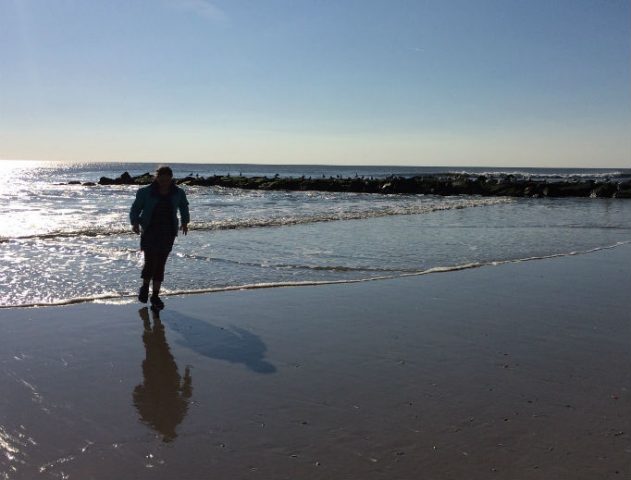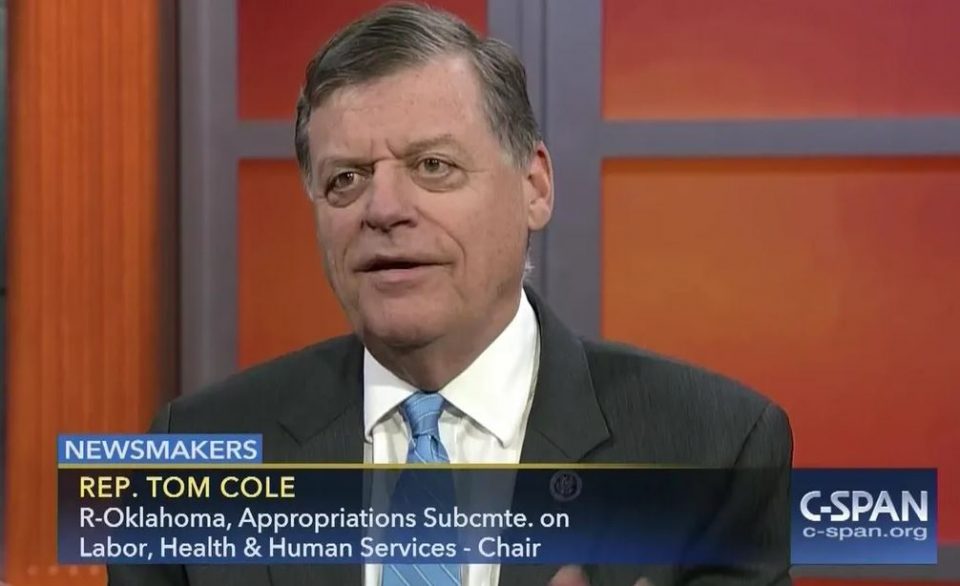Steven D. Greydanus: Clerical Abuse: Thinking Like Human Beings, Thinking Like God

Daily Reading & Meditation: Tuesday (September 18)
September 18, 2018
Catholic Abuse Crisis is Likely No Accident, but a Strategy to ‘Destroy Church From Within’ Using “Ideological Subversion”
September 18, 2018
Homily for the 24th Sunday in Ordinary Time
By Steven D. Greydanus, EWTN News, 9/16/18
Note: This is one of the tougher homilies I’ve preached. It was also one of the best received. — SDG
A few weeks ago my family and I were visiting family in Ocean City, New Jersey. While we were walking on the beach I walked out on the rocks of a jetty projecting into the ocean.
If you’ve ever walked on a rock jetty, you know that between the rocks there are often pools where you often find underwater plants, even sea creatures: barnacles and such stuck to the sides of rocks; sometimes fish swimming around.
As long as the tide is out — low tide — for those creatures that rock pool is their whole world. The fish aren’t going anywhere. The barnacles are never going anywhere, but if the tide didn’t come in and replenish the nutrients in the rock pool, they would starve.
These creatures can live for a while in the rock pool, but it’s only when the tide comes in and the rock pool is swallowed by the ocean that the fish are suddenly free of its confines and a new stream of nutrients washes over the barnacles.
I think of the creatures in those rock pools as I ponder the words of our Lord to Peter in this Gospel.
“Get behind me, Satan!” Satan? Adversary? (That’s what “satan” means: adversary.)
This is St. Peter, prince of the apostles, our first pope. What did he do to be called “satan”?
Did he invite Jesus to call down fire from heaven to destroy unbelievers? No, that was James and John in another Gospel.
No, all Peter did was reject the cross. Suffer and die, Lord? You? That would be terrible! That’s not going to happen!
And what does Jesus say? Does he say “You’re thinking like the devil — you’re saying hellish, satanic, wicked things”? No. “You are thinking as human beings think, not as God thinks. You’re thinking in a human way, not God’s way.”
A flash of grace
Well, who among us thinks like God? Do I? Do you? “My thoughts are not your thoughts,” the Lord tells Isaiah the prophet. “As the heavens are higher than the earth, so are my thoughts higher than your thoughts.”
Thinking like human beings is all we can do, left to ourselves. On our own, we’re kind of stuck in a human perspective — like those creatures in the rock pool. Our human perspective is our whole world.
Ah, but sometimes the tide comes in, swallows up our pool, connects us to the whole ocean. The grace of God lifts us out of our shallow human limitations and into the larger world of divine mystery.
This just happened to Peter in this Gospel when he confessed Jesus as the Christ, the Messiah. “Blessed are you, Simon,” Jesus answers in Matthew’s telling; “flesh and blood has not revealed this to you, but my Father in heaven.”
You see? Here Peter is thinking God’s thoughts, not just man’s. It’s not flesh and blood: This comes from the Father. The divine washes over Peter, liberates him from the limits of flesh and blood.
But just for a moment — just a flash of grace. Then it’s “Get behind me, Satan! You aren’t thinking God’s thoughts any more. You’re back in that human rut” … back in the rock pool.
The greatest event in human history
Why are we here, at St. John’s, today? Why are you here? Why did you wake up this morning, get dressed, and come to Mass?
It’s Sunday obligation. Mortal sin to miss Sunday Mass. It’s the way we were brought up. We want to be good people. Good Catholics. There’s nothing wrong with these reasons as far as they go, but this is all human thinking.
We’re here because God has called us here. Whatever we thought about when we got up this morning, each one of us is here because the eternal, omnipotent, incomprehensible creator of stars and black holes and galaxies loves you; wanted you; created you in order to love you — not for his happiness, but for yours.
He became human for you; suffered and died for you; was raised for you. In heaven he prepares a place for you, intercedes with his Father for you. And by our baptisms he has claimed each of us for God, for resurrection, for eternal life and happiness.
We’re here on the Lord’s Day in honor of the greatest event in human history: God’s triumph over the powers of death and hell through the resurrection of Jesus Christ from the dead. All the evil and suffering in this world, in our lives — all of it — the Son of God has triumphed over by his resurrection.
Of course there’s no resurrection without the cross. We can’t escape it — especially not this weekend. Two days ago, September 14th, the Feast of the Exaltation of the Holy Cross appropriately fell on a Friday. Today the cross dominates the Mass readings. Even on the day of resurrection we stand in the shadow of the Lord’s passion and death. We recapitulate it in the holy sacrifice of the altar.
The cross is desolation, isolation, humiliation, anguish. It encompasses all the pain of this vale of tears. Sometimes it means suffering at the hands of the Church’s enemies. Sometimes at the hands of the Church’s shepherds.
Blind shepherds
Two days ago, on the Exaltation of the Holy Cross, hundreds of people gathered at Sacred Heart Cathedral for a prayer service for victims of clergy abuse and their families. Before he spoke, Cardinal Tobin gave the floor to a man who as a boy had been horribly abused by a predator in a Roman collar.
His testimony is hard to listen to but powerful. You can watch it on video on the Archdiocese’s Facebook page (the service starts around the 38 minute mark).
This boy’s family suspected nothing. To them, the priest was a man of God — he was Christ himself. He wasn’t Christ. He was Satan — the adversary. Christ was that little boy. What that predator did to that child, he did to Christ.
People say “The Church hurt children.” Those children are the Church. Theirs is the kingdom of heaven. Those who hurt them were Satan, whatever offices or titles they had.
And it’s not just what was done by a small number of priests, but also what wasn’t done by a larger number of bishops. Bishops who “looked away,” as Cardinal Tobin put it on Friday — “blind shepherds who refused to respond justly.”
What were they thinking, these bishops? They were thinking of scandal, of the reputation of the Church. They were thinking in a human way — man’s thoughts, not God’s thoughts. They were Satan.
They were rejecting the cross.
This man, by the way, has not lost his faith. His conviction is a beautiful thing. He doesn’t want to leave the Church! He wants to see the predators and do-nothing bishops leave the Church.
Making God credible — or incredible — to others
Many have lost faith, or struggle with their faith. I get that. As I look out into this church I wonder how many faces are missing because of this crisis. It’s understandable. Human thinking, but understandable.
Cardinal Ratzinger, Pope Benedict XVI, once said that what the world needs most of all at this moment are people, in his words,
who, through an enlightened and lived faith, render God credible in this world. The negative testimony of Christians who speak about God and live against him, has darkened God’s image and opened the door to disbelief … Only through men who have been touched by God, can God come near to men.
You see, how we live as believers can make God more believable — or unbelievable — to others.
When people see believers living with integrity, it helps make God real to them. It helps to lift them out of their rock pool, connect them to the ocean of divine mystery. The flip side is when outwardly religious people live in ways that are obviously contrary to God’s love, it makes it easier for people to think it’s all just a sham. There’s no ocean of divine mystery. The whole world is just our rock pool.
The world needs men and women who live their faith in such a way as to help others find their way to God. Who think God’s thoughts and not just human thoughts. God calls us to this for one another and for those around us.
“Let’s be the one who remained”
I leave you with a few words from a letter from a priest of the Diocese of Santa Fe to seminarians (you can read the whole thing at his blog). Here is someone thinking the way God thinks.
On the darkest day the world has ever seen, at the very beginning of the priesthood of Jesus Christ, one betrayed, one denied, and nine fled. Only one remained…
We’ve seen those who have betrayed, and what they’ve done should make us sick to the stomach and furious to the very depths of our souls.
We’ve all at one point or another been those who deny the Lord or run away from our faith when times get hard and we get scared…
At this crucial moment in the life of the Church, though, let’s be the one who remained.
What does that mean? Just don’t leave the Church? No. So much more.
To remain as the Beloved Disciple remained is to cling to Christ when He doesn’t seem all that powerful, to be associated with Him when He is not all that popular, to suffer alongside Him as His Body hangs, bleeding and battered, on the Cross. To remain with Him means to be close to His mother who weeps for the members of her Son’s Body so deeply wounded by those who were meant to represent Him…
While we don’t want to become totally distrustful of those tasked with leading us, we have to be honest about the fact that in this current climate of “his word or mine”, we don’t know who or what to believe anymore.
Believe this: The King has nails in His hands and the Queen a sword in her heart. You can trust them because they are hurting as much as you are. Remain with them. Suffer with them.




